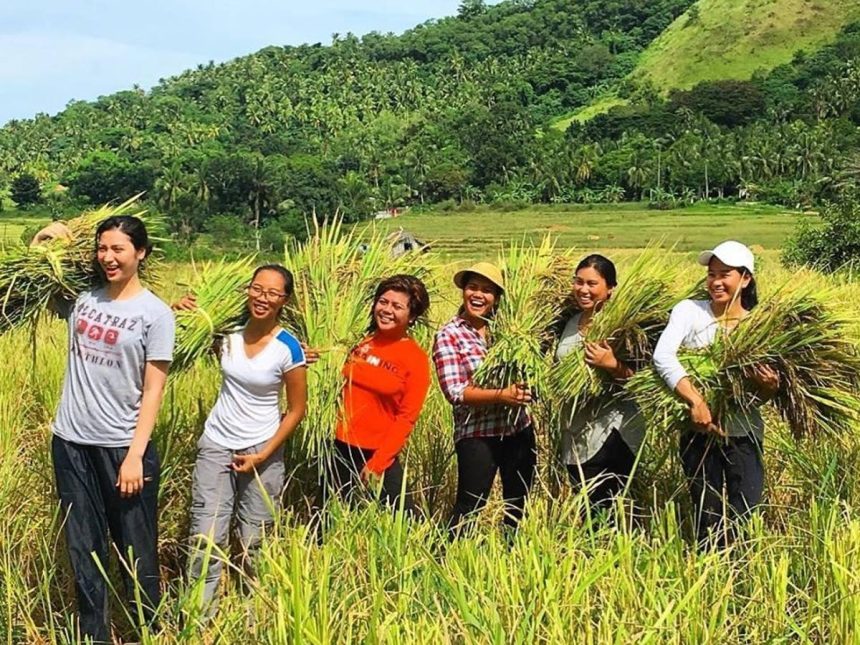The convergence of indigenous farming practices and modern agricultural innovations is generating powerful solutions to global food security and environmental challenges. Indigenous knowledge, honed over generations and deeply rooted in specific ecological contexts, offers invaluable insights into sustainable land management, crop diversification, and climate resilience. By integrating these time-tested practices with advancements in scientific methods, technology, and data analysis, we can amplify their effectiveness and create more robust and adaptable agricultural systems. This synergistic approach is not only crucial for addressing issues like population growth and environmental degradation but also for fostering stronger climate resilience and ensuring food security in an increasingly uncertain future. International forums, such as the Rio Conventions, are increasingly recognizing the importance of this integration, advocating for the inclusion of indigenous voices in global dialogues on biodiversity, climate change, and desertification.
The inherent value of traditional knowledge stems from its holistic perspective, encompassing the intricate relationships between humans, nature, and the environment. As Esther Penunia of the Asian Farmers Association highlights, this understanding extends beyond simple agricultural techniques and delves into the deeper interconnectedness of all living things. Modern technology serves as a powerful complement to these traditional approaches, providing tools to enhance efficiency, precision, and scalability. By combining time-tested methods with data-driven insights and innovative technologies, farmers can address contemporary challenges while preserving the integrity and wisdom of their ancestral practices. This approach allows for the development of context-specific solutions that are both effective and sustainable.
The story of Cherrie Atilano and her organization, AGREA Agricultural Systems, exemplifies the potential of this integrated approach. Growing up on a sugarcane farm in the Philippines, Atilano witnessed firsthand the hardships faced by smallholder farmers and the limitations of monoculture farming. Inspired by the inherent wisdom of local farmers and their deep understanding of the land, she founded AGREA to bridge the gap between traditional knowledge and modern science. AGREA’s work on Marinduque Island demonstrates how empowering farmers with a combination of ancestral practices and modern techniques can lead to optimized yields, thriving food systems, and improved livelihoods. Atilano’s approach emphasizes prioritizing household farming solutions as a foundation for building stronger, more resilient communities.
The East-West Seed Knowledge Transfer Foundation in Bangladesh provides another compelling example of this synergistic approach. Working with smallholder farmers facing the impacts of climate change, the Foundation combines traditional farming methods with climate-resilient inputs and education in sustainable practices. This knowledge exchange is a two-way street, with farmers contributing their invaluable local insights while also adopting and adapting new technologies. The Foundation’s efforts have led to significant increases in vegetable yields, enhancing food security and income generation for farming families. This case study highlights the importance of recognizing farmers as experts and building upon their existing knowledge base to create impactful, sustainable solutions.
Ajinomoto’s Agro2Agri initiative further demonstrates the power of combining scientific innovation with traditional practices. Their tailored plant-based bio-stimulants, rich in amino acids and bioactive compounds, boost crop productivity while reducing the need for chemical fertilizers. This approach not only increases yields but also minimizes environmental impact by reducing carbon emissions and promoting more efficient water use. In Uganda, Ajinomoto collaborates with The Kafunjo Community Project, integrating bio-stimulants with indigenous farming practices like crop rotation and intercropping. This integrated approach strengthens food security, improves environmental sustainability, and generates income opportunities for local communities.
Sahanala in Madagascar provides another compelling example of this integrated strategy. Working with smallholder farmers in a biodiversity-rich yet climate-vulnerable nation, Sahanala combines traditional Malagasy pest control methods with modern tools like mechanized plowing. This approach preserves biodiversity while also driving sustainable economic development. Sahanala’s holistic approach includes training, market access support, health and education initiatives, and resource conservation, creating a comprehensive framework for community development and resilience. The organization’s commitment to subsidizing rice during lean seasons ensures food security and underscores the link between good nutrition and productivity.
The success stories of these initiatives demonstrate the transformative potential of integrating indigenous knowledge and modern science. From the Philippines to Bangladesh, Uganda to Madagascar, time-tested methods, combined with innovative technologies, are proving effective in addressing complex agricultural challenges. This approach not only benefits farmers and their communities but also offers significant advantages for businesses. By partnering with local farmers and respecting their traditions, organizations can secure stable supply chains, improve product quality, mitigate environmental risks, and foster innovation. Investing in local farming communities also enhances brand reputation and aligns with growing consumer demand for ethically sourced products, creating shared value for all stakeholders. The Zero Hunger Pledge, embraced by organizations like AGREA, Sahanala, the East West Seed Foundation, and Ajinomoto, reflects a global commitment to harnessing the power of this integrated approach to build a more sustainable and equitable food system. By listening to the wisdom of those who are most intimately connected to the land, we can cultivate a future where everyone has access to nutritious food and where agricultural practices contribute to a healthy planet.



